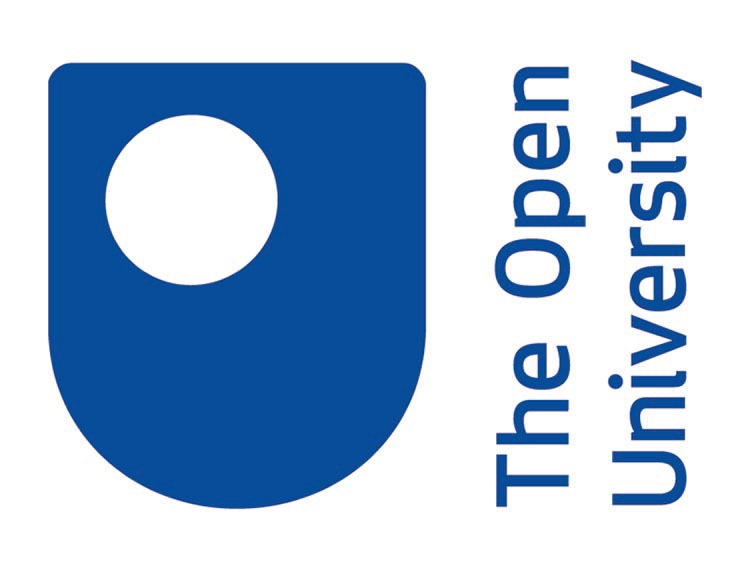Disabled #apprentices left behind as businesses struggle to recruit and support

The Open University’s new report, ‘Access to Apprenticeships‘ released today (26 Sept), has found that, while two thirds of employers consider hiring candidates with disabilities for entry-level roles is an important priority for them, many feel ‘unequipped’ to do so – with financial barriers and lack of training meaning they aren’t able to offer the correct provisions for disabled workers.
In a new @OpenUniversity report released today, more than two in three employers said that hiring apprentices or graduates with a disability is an important priority for them.
Download the OU’s Access to Apprenticeships report:https://t.co/pwOLoz4HMS pic.twitter.com/Sge0v7z10g
— OU for Business (@OUforBusiness) September 26, 2019
The Open University is calling on the UK Government to help businesses further attract and recruit more disabled apprentices through its apprenticeship programmes.
The call comes following the Department for Education’s latest apprenticeships starts data, which shows the number of people starting apprenticeships in England with learning difficulties and/or disabilities is at 12.3%1, and a major survey of over 700 employers in England which shows employers feel ‘unequipped’ to provide equal opportunities to people with declared disabilities.
Close to half of organisations (47%) believe their companies could do with more internal support to help apprentices or entry-level graduates with declared disabilities
The survey forms part of the OU’s new ‘Access to Apprenticeships’ report. Key decision makers showed that whilst over a third of employers surveyed (38%) had proactively recruited individuals with disabilities over the past three years, many want further assistance in doing so, and more information on how to support the apprentice.
The survey unearthed a widespread lack of understanding of the support available to assist the recruitment of apprentices and graduates with declared disabilities. Almost a quarter of employers (24%) face challenges in financing the additional support required to train and develop individuals with a disability and over a quarter of decision makers (29%) report they don’t have the training to enable them to better support employees with declared disabilities.
There is widespread recognition about the benefits of a diverse workforce and the importance of providing training opportunities for people with declared disabilities.
To help increase the number of apprentices with declared disabilities, The Open University has published four recommendations for the UK Government to ensure that government, training providers and employers can work better together to support, recruit and retain more apprentices with disabilities.
1. Enhance recruitment support
The UK Government needs to do more to support employers to promote apprenticeship vacancies to people with disabilities through their campaign activity and their vacancy service.
Consideration should be given to how employers can utilise the Apprenticeship Service to show that they are disability-friendly, promote roles that are suitable for individuals with different types of disability and identify disability-friendly training providers and specialist/third sector organisations that they can work with to identify and on-board candidates.
2. Provide more transparent Information, Advice and Guidance
Both the UK Government and training providers need to provide much better and clearer information advice and guidance (IAG) to all employers hiring apprentices, and in particular to SMEs, around the support available to recruit and develop apprentices with disabilities (for example Access to Work).
3. Simplify the funding and clarify the eligibility and assessment processes
To ensure every individual receives the support they deserve. The Department for Education should consider how the current funding model for individual learners, providers and employers seeking additional learning support can be radically simplified.
4. Improve education and training for employers
It is vital that all those working with apprentices with disabilities are fully trained and able to support individual needs to help them to succeed. A common programme of education should be considered for all employers recruiting apprentices with disabilities along the lines of the Mental Health First Aid programme.
The survey also highlighted the prevalence of mental health conditions amongst the workforce, with one third (34%) of employers reporting an increase in entry-level applications from candidates with declared mental health conditions. In fact, mental health conditions are the most commonly reported workplace disability, with 28% of employers reporting their presence within their organisation.
Employers who reported an increase in declared mental health conditions amongst apprentices and entry-level graduates believe the increase comes down to a number of factors, the most widely reported being personal non-work related issues (45%), increased stress at work (42%), and a reduced stigma around mental health (40%).
Laura Burley, Apprenticeships Ambassador at The Open University responded to the findings:
“Support is available from both the UK Government and learning providers to enable businesses to hire and support apprentices with declared disabilities. Our report shows that a lack of understanding of the resources available creates a disconnect and as a result, there is a danger it reduces the opportunities that are opened up to candidates with declared disabilities.
“At The Open University, we are committed to ensuring that education is ‘open to all’ and apprentices and students with declared disabilities have access to equal opportunities. The OU has over 24,000 students with a declared disability, which is over half of the UK’s disabled part-time undergraduate student population.
“We know that employers have a strong appetite to grow the number of apprentices they hire in the future and also want to reap the benefits of a diverse workforce and hire more apprentices with disabilities so today we are calling on the UK Government to help make clear the support that’s available for employers, and examine how the apprenticeship levy in England could be used to streamline the process and widen access to the workplace for apprentices with declared disabilities.
“With a growing number of people facing mental health challenges, it needs to be a top priority to ensure that employers are equipped to help employees, particularly those entering the workforce for the first time as apprentices or entry-level graduates. We are delighted to publish this survey to help promote a positive conversation on how employers, governments and providers can be committed to providing healthy and appropriate working environments.”
Methodology
The Open University has conducted a comprehensive piece of research with 711 large and SME employers in England from across both the public and private sector to understand the following;
- Employers plans to hire apprentices/graduates
- Employers attitudes to hiring apprentices/graduates with disabilities
- The barriers they face and support they require
- The opportunities that exist to make improvements to the current apprenticeship system.
- The role of employers, training providers and government.
The Open University commissioned PCP research to conduct both quantitative questions and qualitative interviews with key decision makers in these organisations including CEOs, HR Directors and Senior HR Managers.
This survey focuses on employers in England and puts forward recommendations to the UK Government although, as a training provider operating in all four Nations of the UK, we know that many of the experiences that employers encounter across the Nations are similar. The policies and funding environments in which they operate in, however, are very different.
About The Open University (OU): The largest academic institution in the UK, with a long heritage in flexible distance learning. Since it began in 1969, the OU has taught more than 2 million students, and it currently has almost 175,000 students.
Over 75% of students are in full-time or part-time employment, and four out of five FTSE 100 companies have sponsored staff to take OU courses. The OU launched its higher and degree apprenticeships offering in 2016 to provide employers with flexible, technology-enabled apprenticeships in leadership and management, digital, policing, social work, healthcare and nursing. It currently has over 1,400 apprentices on programme and works with over 400 employers in a wide range of sectors. The OU has an apprenticeship employer satisfaction rating of 98% (FE Choices/DfE survey).
The OU has a wealth of experience in delivering accessible learning ranging from its undergraduate programmes through to its higher, degree and graduate apprenticeships and over 24,000 students with declared disabilities study at the OU. The OU can support employers to gain the higher skills they need and employees to access flexible learning tailored to their individual needs.
Regarded as the UK’s major e-learning institution, the OU is a world leader in developing technology to increase access to education on a global scale. Its vast ‘open content portfolio’ includes free study units, as well as games, videos and academic articles and has reached audiences of up to 9.8 million across a variety of online formats including OpenLearn, YouTube and iTunes U.











Responses